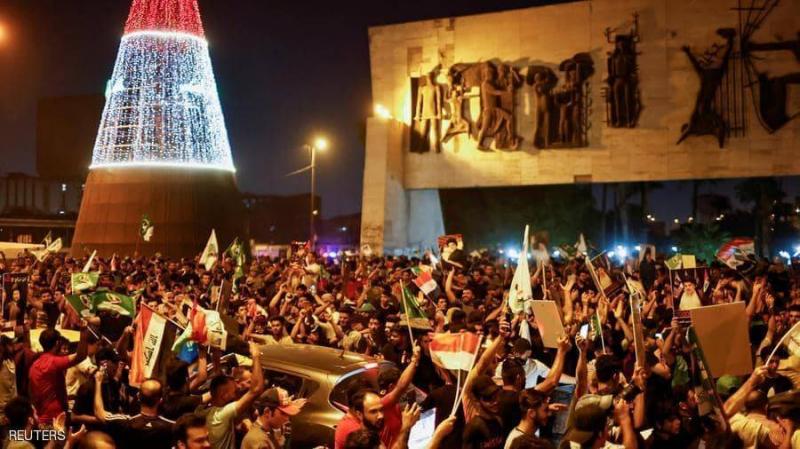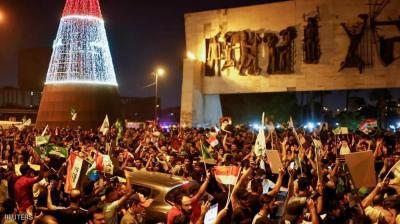The results of the parliamentary elections in Iraq brought major surprises, the most notable being the loss of the Al-Fateh Alliance, the political umbrella for the Popular Mobilization Forces and Iran-aligned factions, which lost about 34 seats, down from 48 seats secured in the 2018 elections. This was seen as an indicator of the public’s rejection of this path. The alliance, which includes several blocs such as Badr Organization and Asa'ib Ahl al-Haq, hoped to achieve significant results that would allow it to participate in forming the government or imposing its vision on it, but the outcome was the opposite.
After the election results were announced, the alliance parties held an urgent meeting to discuss the implications of their loss, raising concerns about their acceptance of the election results or the possibility of resorting to armed measures. In contrast, the Sadrist Movement led by Muqtada al-Sadr ranked first with approximately 72 seats, while the Progress Party (Sunni) came in second with around 43 seats.
The loss of al-Abadi and al-Hakim also stunned political circles, as the State Forces Alliance, formed by the Hikma Movement led by Ammar al-Hakim and the Victory Coalition led by Haider al-Abadi, had won 61 seats in the previous elections when they were not allied. Prominent political writer Fadl Ahmed interpreted this by saying that "the State Forces Alliance relied on the moderate civilian audience in confronting the Sadrist Movement and the Al-Fateh Alliance, but they did not realize that this audience's inclinations were more towards independents and new parties than to any old party."
Ahmed added to "Sky News Arabia" that "al-Hakim and al-Abadi did not account for this possibility and relied on their resources and political experience, which ultimately did not help them garner Iraqi votes." He noted that "the State Forces Alliance lacks a constituency that adheres to a specific ideology, and thus it is an ideologically amorphous coalition, with unclear positions towards militias or protests, and its attempts to please all sides ended up displeasing all parties."
While the "Progress" coalition led by Parliament Speaker Muhammad al-Halbousi achieved first place in the Sunni geography, the “Azm” coalition led by businessman Khamis al-Khanjar faced a significant loss, obtaining only about 14 seats, despite including well-known figures like Dhafer al-Anbari, Khaled al-Obeidi, Qasim al-Fahdawi, and Salman al-Jammali among its members.
The seats obtained by parties emerging from the popular protests that erupted in 2019 were among the biggest surprises of the elections in Iraq; for instance, the "Extension" party, led by activist and demonstrator Ala’a al-Rikabi, secured 9 seats nationwide in Dhi Qar Governorate, while the "January Glow" party obtained around 6 seats, alongside approximately 10 other independents, granting them a substantial bloc in the 329-seat parliament.
Activist Wathiq al-Miyahi believes that "the popular trend clearly indicated a desire for change, to give new directions a chance to participate in governance and break the stagnation of old parties, which indeed happened, as we witnessed a rebellion against some old parties, even if it is not complete, but there is public acceptance for the independents and activists supporting the protests."
Al-Miyahi added to "Sky News Arabia," "The number of seats came despite the massive boycott of the elections and the low turnout, and the lack of sufficient opportunity to promote and present programs due to the dominance of traditional parties over the public, enticing them with money and intimidating them with weapons, which encouraged other parties to insist on participating in the elections."
In Iraqi Kurdistan, the "New Generation" party secured 9 seats, while the Change party did not manage to secure any seats. The absence of prominent figures such as former Youth and Sports Minister Abdul Hussein Abtan, former Defense Minister Khaled al-Obeidi, and businessmen like Hussein al-Ankoushi and Aras Habib also constituted a surprise.




